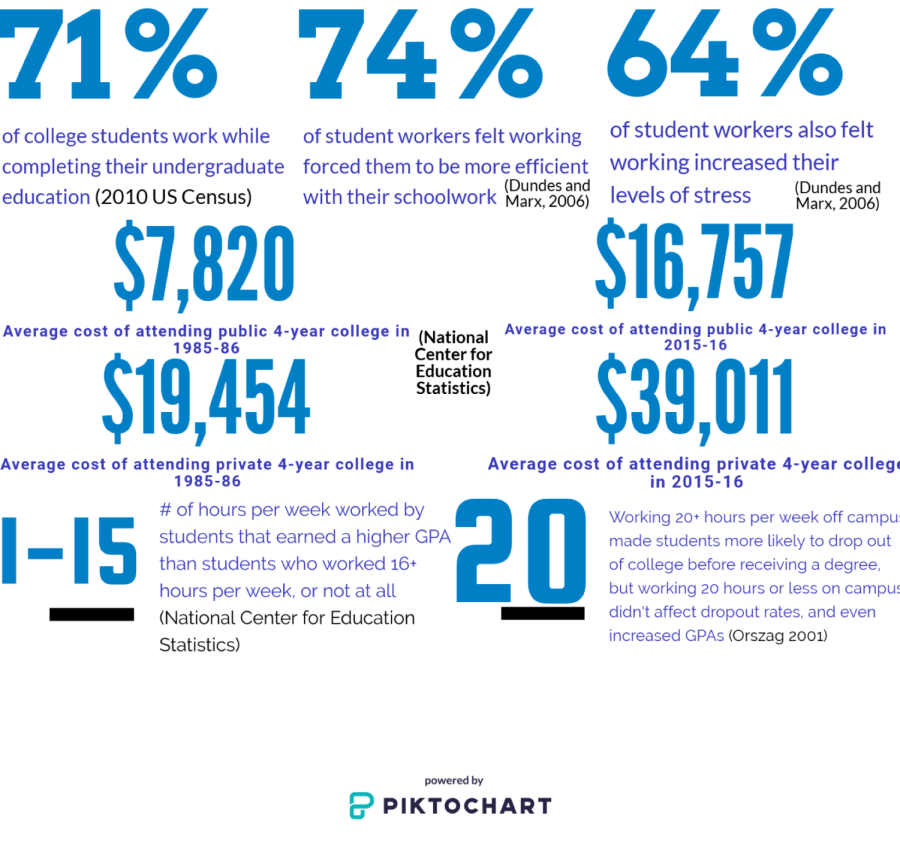Working on campus as a commuter student
October 17, 2018
Commuter students who work on campus are more likely to stay at their colleges and more likely to succeed while doing so.
A compilation of studies about student employment from Brigham Young University’s Employment Services in 2016 found approximately 71 percent of students have jobs while working on their undergraduate degrees.
This research holds true at Kent State with over 6,000 of roughly 28,000 students enrolled at the Kent campus working on campus, while others work off campus
jobs as well.
Another study cited in the compilation said, whether it was on or off campus, 74 percent of students felt having a job made them prioritize things and work more efficiently, but 64 percent said it also caused more stress in their lives.
However, working on and off campus for commuter students is a more significant difference. One study said working 20
hours or less per week for an on-campus
job made students feel more connected
to their university.
“They’re engaged,” said Keith Smith, the student employment program coordinator for Career Exploration and Development. “They know more of what’s going on on campus. Unfortunately, a lot of times a typical commuter student may just come for classes and leave.”
Smith said commuter students who work on campus spend more time on campus, which leads them to interact with more students and faculty and learn about events.
“The research shows proximity to
your classes, a supportive environment and being connected to other students on campus — those are the three primary things that have been identified as leading to higher retention rates,” Smith said.
In addition to social and personal benefits, Smith said there are also academic benefits. In the 2016-17 academic year, the first to second year retention rate of students was 80 percent. Smith said the number for students who work on campus is about 90 percent.
Kelsey Lawler is a sophomore visual communication design major who has worked at the Geauga Campus and currently works at the front desk of the Career Exploration and Development office. She wrote in an email that at the Geauga campus, she worked off campus and felt it was more difficult to make friends.
She wrote that she thinks it’s good students work in jobs like hers on campus, because when someone comes to her with a question or concern, “I am willing to put in as much effort to help them because I would want that if I was in the same situation.”
Some students don’t feel the same. Rebecca Douglas, a junior zoology major, commutes and works at the front desk for tutoring in the Academic Success Center, where she has worked since freshman year. She said she thinks even if she didn’t work on campus, she wouldn’t necessarily feel
less connected to Kent State, although
there are benefits.
“They’re very flexible with the schedule, because you’re a student first and employee second,” Douglas said. “They can work around your class schedule, which is very nice.”
Flexibility is also a point Smith brought up, as Kent State follows the federal regulations for on-campus employment, only allowing students to work 28 hours per week and 20 for international students.
Smith said working on campus can help develop various professional skills employers look for, sometimes more than simply a degree in a specific major.
Aaron McDade is the jobs and money reporter. Contact him at [email protected].












